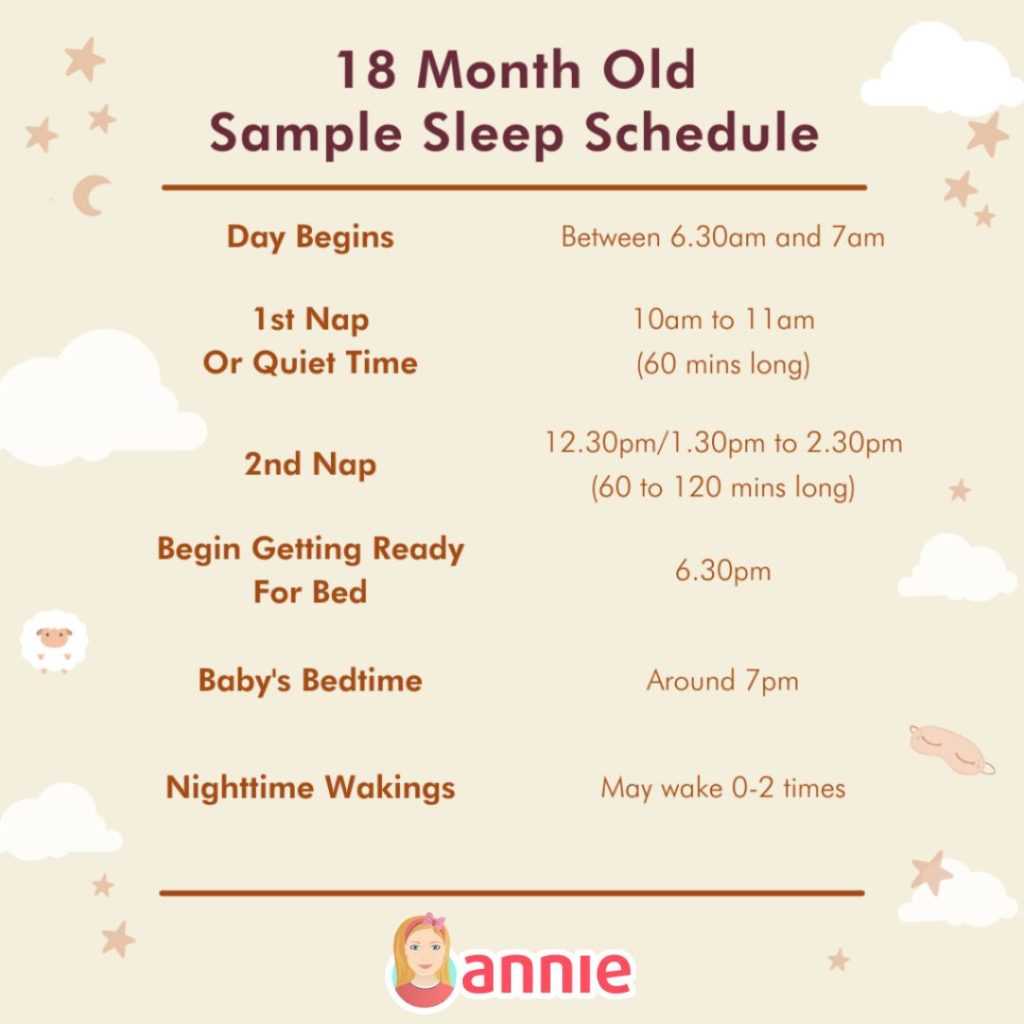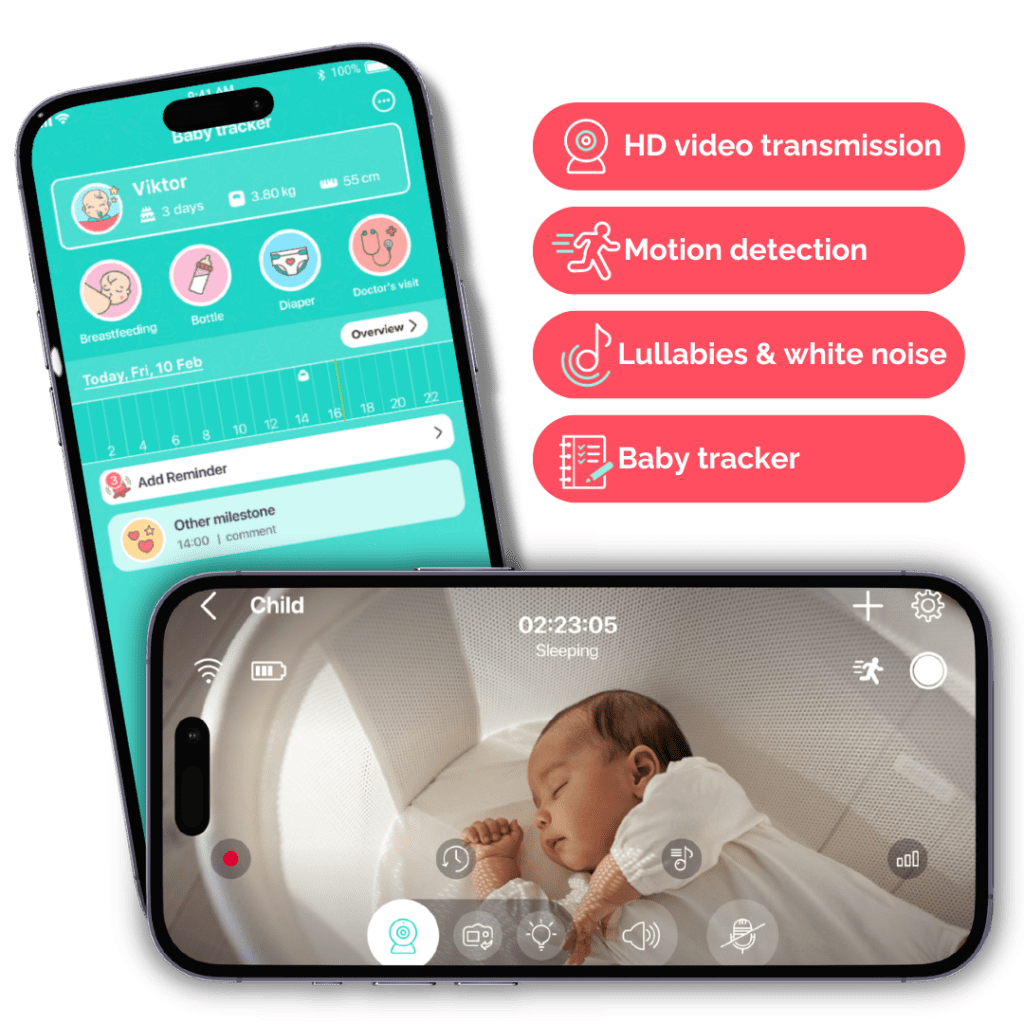
Navigating the 18 Month Sleep Regression: What to Expect and How to Help Your Baby
- Created:
8. 10. 2024 - Updated:
9. 1. 2025
By 18 months, your toddler is on the move, exploring and asserting their independence. Just when you think you’ve nailed the baby sleep routine, things take an unexpected turn.
Newsflash:
The 18-month sleep regression is real, and it can throw you off.
But here’s the good news:
We’re here to help you through it! Follow along as we break down what’s going on and how you can support your little one during this phase.
Why 18 Months is a Common Time for Sleep Regression
Here’s the thing:
At 18 months, your toddler is hitting some huge milestones. From language development to motor skills, their brain and body are working overtime. These changes can disrupt sleep, leading to the dreaded regression.
Check it out:
- Independence: Your toddler is learning they can make choices, and sometimes that means refusing to sleep.
- Separation anxiety: Around this age, toddlers may get extra clingy, making bedtime separations tough.
- Teething: Molars are coming in, and the discomfort can cause restless nights.
- Developmental leaps: Talking, running, and problem-solving—your toddler’s mind is buzzing, which can makeit harder for them to wind down.
Unsurprisingly:
These developmental changes can directly impact sleep, leading to more night wakings and resistance to naps or bedtime.
Signs of the 18-Month Sleep Regression
It’s no secret:
If your toddler is struggling to sleep, it impacts the whole household. But recognizing the signs early can help you tackle the issue head-on.
Here’s what to watch for:
1. Increased Night Wakings
Suddenly, your toddler wakes up more frequently at night—even if they’ve been sleeping through before. This is a classic sign of sleep regression.
2. Bedtime Resistance
Does your toddler suddenly hate going to bed? They might start fighting the routine, even though they’re tired.
3. Shorter or Missed Naps
The 18-month regression can also affect daytime sleep. Your toddler might skip naps entirely or cut them short.
4. More Fussiness and Irritability
With less sleep, your toddler might be crankier or more emotional during the day. Sound familiar?
Causes of the 18 Month Sleep Regression
Here’s the truth:
A lot is happening in your toddler’s world right now, and these factors can contribute to sleep disruption:
1. Teething
Those big molars coming in can cause discomfort, making it hard for them to sleep soundly.
2. Separation Anxiety
At 18 months, many toddlers start to experience more anxiety when separated from their parents, especially at bedtime.
3. Developmental Milestones
Whether learning new words or mastering climbing, your toddler’s brain is in overdrive, which can delay their ability to settle down.
How to Handle the 18-Month Sleep Regression
Admit it:
Navigating this regression can be challenging. But there are ways to help your toddler get through it—and come out the other side sleeping better.
Here’s how:
1. Stick to Routines
Consistency is key. Stick to your toddler’s regular sleep routine as much as possible to help them feel secure.

2. Offer Comfort
If your toddler is dealing with separation anxiety, offering some extra comfort at bedtime can go a long way. A favourite blanket or stuffed animal can help.
3. Adjust Nap Schedules
This might be the time when your toddler transitions to one nap a day. Watch their cues and adjust accordingly.
4. Patience is Crucial
Your toddler is learning a lot right now, so be patient. This phase is temporary!
Final Tip: Annie Baby Monitor – Your Sleep Helper
Babies and their sleeping habits can be quite puzzling!
But don’t worry, with Annie Baby Monitor’s baby tracking feature, you can keep an eye on your little one’s sleep patterns without any hassle.
Annie Baby Monitor baby tracker allows you to keep a watchful eye on your newborn’s sleep duration. By collectingand analyzing this valuable data, you can identify patterns and create a sleep routine that suits your baby’s needs.

So, if you’re navigating the world of newborn sleep, let Annie Baby Monitor be your trusted sleep helper.
Conclusion
Let’s run it through one last time:
The 18 month sleep regression prevents your baby from sleeping easily, calmly, and properly. It can present signs such as difficulty sleeping, increased night wakings and fussiness, and shorter naps.
Generally:
This sleep regression happens due to separation anxiety, changes in routine, and developmental milestones like teething and motor skill development.
But you can handle the 18 month sleep regression by:
- Maintaining consistency
- Carrying out comfort measures
- Developing a nap strategy
- Indulging in parental self-care
Remember:
The 18 month sleep regression is normal, so you don’t need to panic if your baby shows symptoms. With a little help from you, your little superhuman would power through this phase like a breeze.
As always:
If you found this article insightful or you have any questions, don’t hesitate to let me know in the comments.






